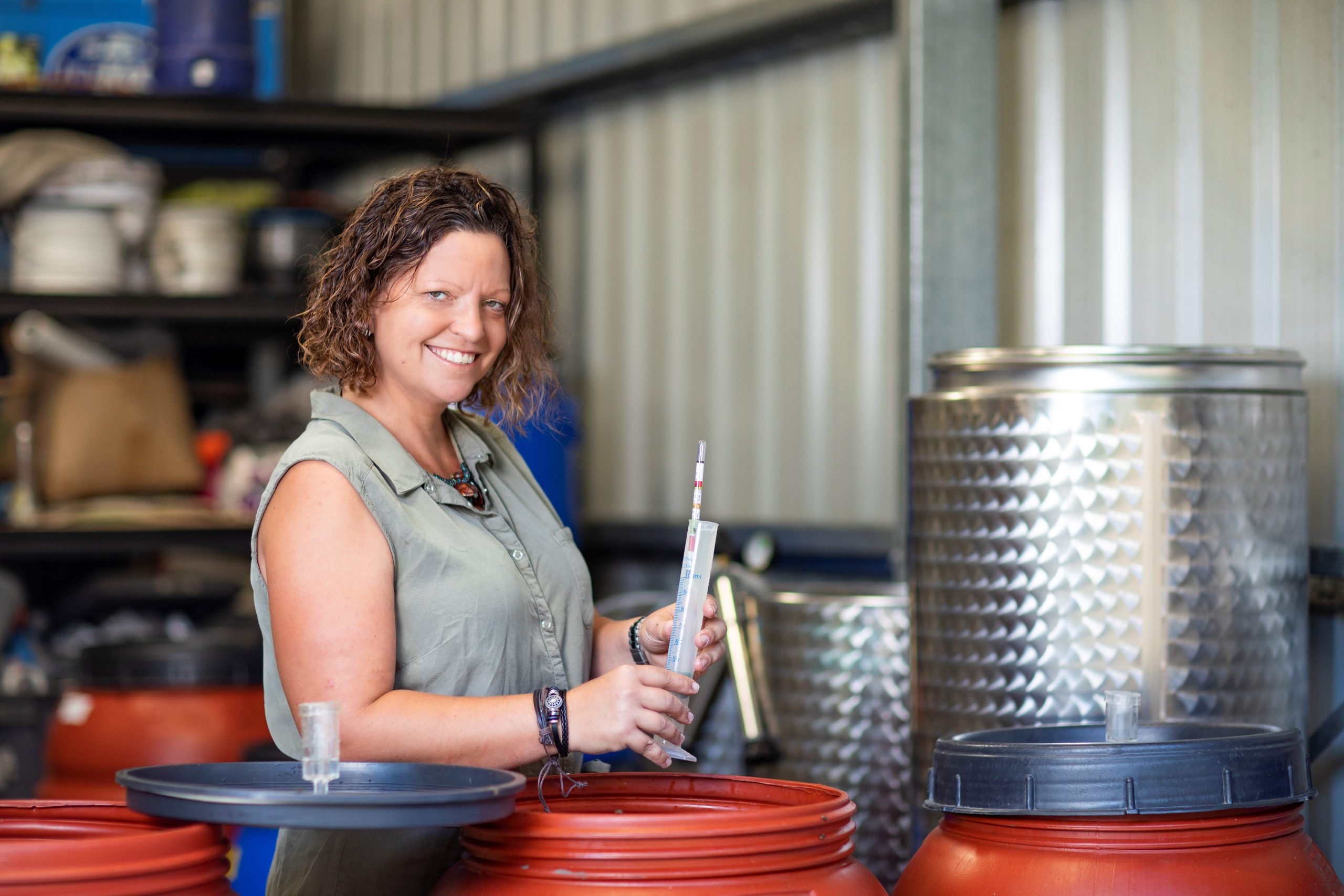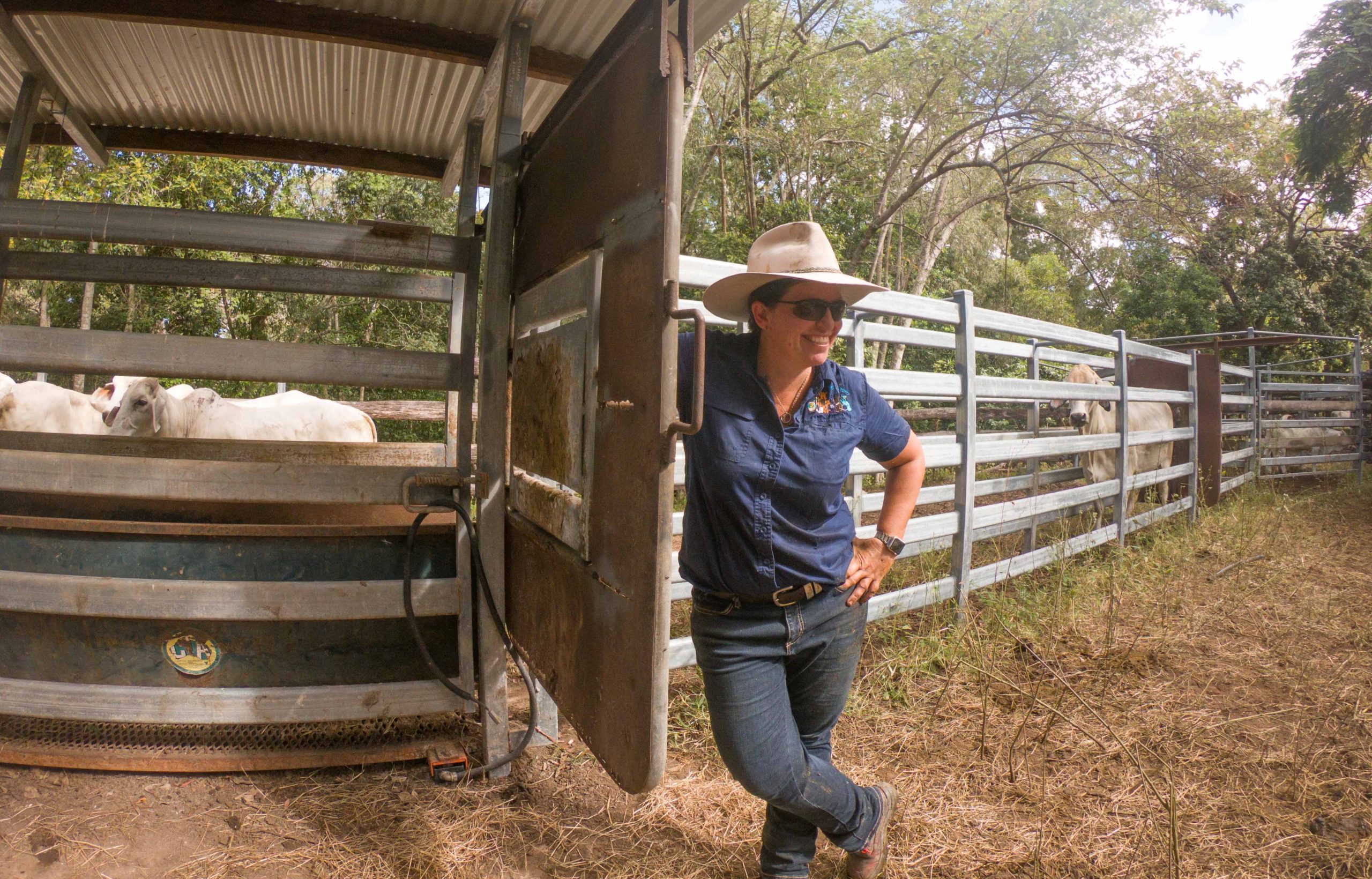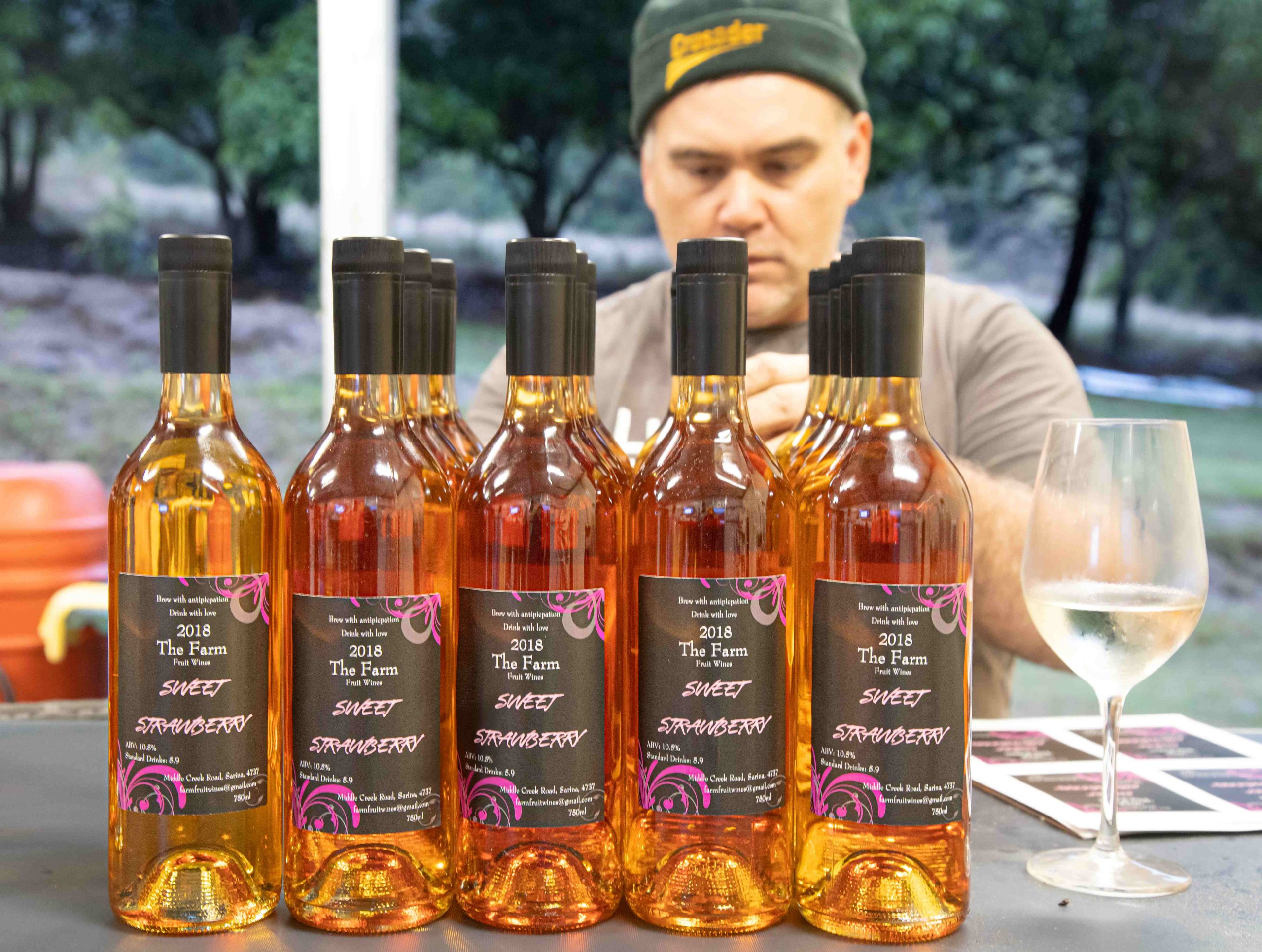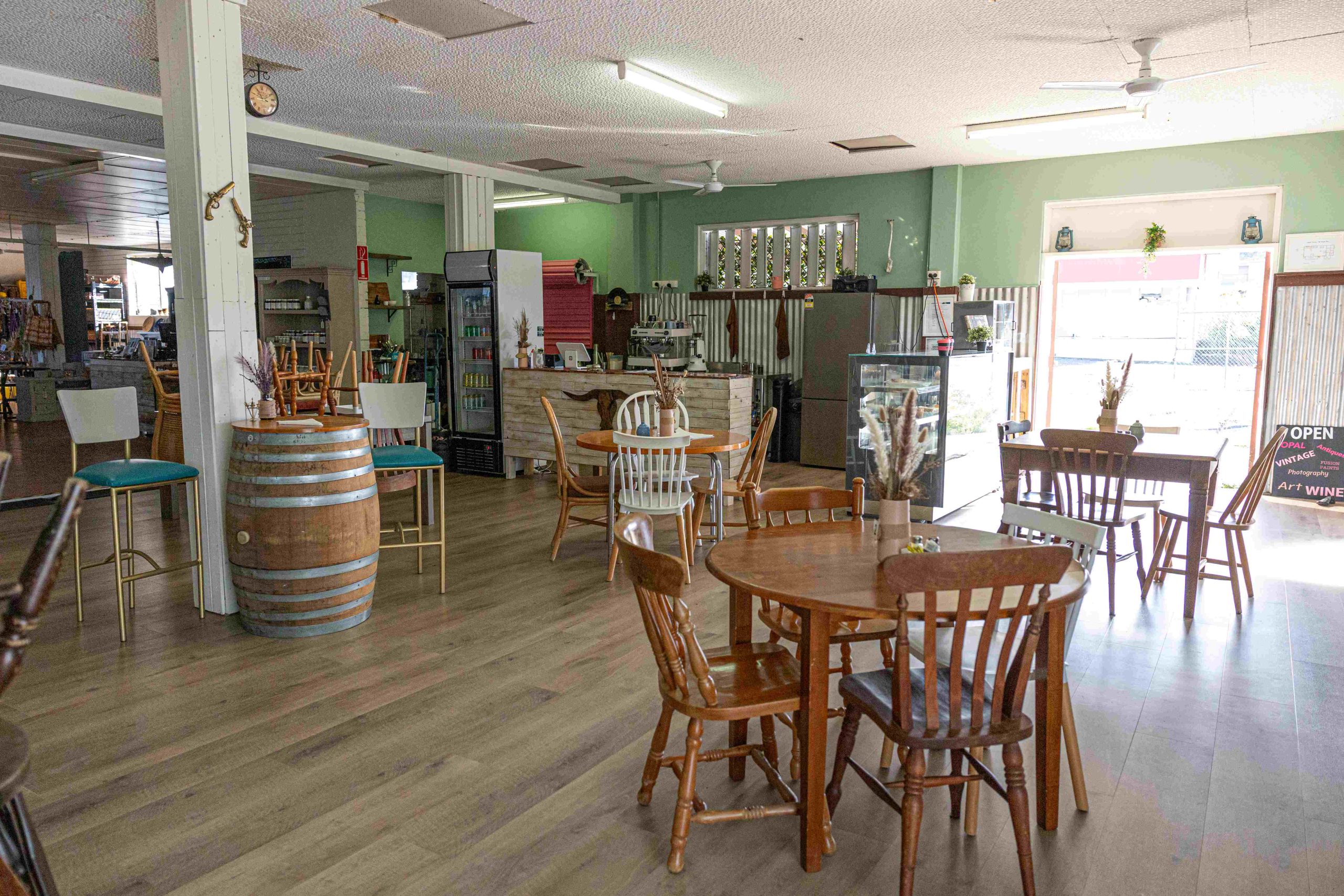How Sarina vet, Rebecca Bannan, is using fruit rejects in a tasty way.
Story by Jessica Rea
Photos supplied by Rebecca Bannan

Every community has one, very special, person who is always on the go, starting new projects, busying themselves with this or that. You may often wonder, where on earth do they find the time? In the Queensland coastal town of Sarina, that person is Rebecca Bannan.
Growing up in Barcaldine instilled a country work ethic in Bec that has clearly stuck with her for years to come. After completing her university education with a degree in Veterinary Science from the University of Queensland, the urge to return to her rural roots was strong and Bec took her first job as a newly qualified vet in Emerald. In 2002, she moved to Sarina along with her husband, Joe. Plans to move to the UK within a few years went by the wayside when the local veterinary practice came up for sale, a business opportunity Bec could not allow to go wasted. She took over the practice with then office manager, Stephanie Sleeman. Before long Bec was immersed in the Sarina community through her work as the local vet and juggling a busy career with a young family.

One may say she had enough on her plate, but Bec is just not that sort of person. By her own admission, she is someone who seeks out a project and the bigger the challenge the better. It was the Christmas of 2016 and Bec, along with her family, were enjoying the sunshine on their 15 acre block close to Sarina. Bec’s block is home to some 30 mango trees which are rather productive. Unfortunately this means, more often than not, the fruit would drop to the ground and rot before it could be picked by the Bannan family, and the odour produced by the rotting mangoes was not so sweet. This got Bec to thinking, what can we do with all this fruit? There are only so many mangoes that can be given to the kids for a snack, that can be dehydrated or made into a mango daiquiri. And Bec didn’t love the idea of mango chutney taking over her pantry. This is when a thought came to her from her childhood, a memory of her grandmother making fruit wine. Bec’s grandmother was a lady of German descent whose family came to Australia with very little money. This meant, in their household absolutely everything was used including discarded fruit to ferment into fruit wine.
Bec shared memories of gathering prickly pears for her grandmother to make into fruit wine, but young Bec thought a great way to do this quick was to crack them with her stock whip. It's safe to say this did not end well for her. She recounts scenes from her grandmother’s kitchen where batches of fruit were juiced, bottled and fermented in an effort to reduce food waste in her grandmother’s home and that’s where the fruit wine came in. This concept stuck with Bec and over time developed into her passion project, The Farm Fruit Wines.
But rediscovering the fruit wine making process was not an easy road for Bec. Vague memories were all she had to go on initially and her first batch of mango fruit wine was less than tasty. But that did not deter Bec from trying again. So, it was back to the drawing board for The Farm Fruit Wines. With a bit of trial and error and some assistance from Google, Bec began to develop her fruit wine making process. Still today she tries all varieties of fruits and vegetables, pairing them with tasty food combinations to bring out their best flavours. Bec accepts fruits from all parts of the community, from bags of homegrown mandarins taken after a vet visit on-farm, to locally collected bush lemons, to fruit from local growers rejected by the major supermarket chains. With little to no damage at all, the fruit would otherwise be disregarded and go to waste, a huge issue in the industry that underpins the Sarina community.
Over time Bec has developed her own way of processing the fruit to make wine, whilst still an experiment with each new fruit she tries. The basis of her process begins at her freezer where the fruit is stored until there is a batch large enough for juicing. Everything is weighed and recorded in detail. Bec’s family is roped in to assist with the wine making. Her two eldest children, Ashley aged 15 and Luke aged 13, take on juicing responsibilities, whilst her youngest son, Brendan aged 10, is the gofer and head dish washer!
The fruit is loaded into a large juicer with a 60kg capacity. A bladder on the inside of the juicer slowly fills with water and pressurises the fruit placed inside the container until the fruit juice begins to flow. The juice is collected and then mixed with a water and sugar solution. This is where fruit wine differs from grape wine. The water is required to reduce the acidity of the fruit. However, this means the natural sugar content of the fruit is diluted, hindering your ability to get alcohol after the fermentation process. So Bec adds extra sugar to her mixture to ensure the alcohol content is just right.
Whilst this is happening, Bec busily prepares the yeast, plus a few secret ingredients to improve the clarity of the final product. She checks the acidity levels are right where they should be and lets the fermentation process begin. The wine is left in the barrel for the next twelve months. During this time the barrels are racked, this is when the wine is transferred to a fresh barrel to clear out any sediment that has settled at the bottom.
Once the wine is ready to be bottled, it is put through a vigorous filtering process. Again, a few helping hands from the family are required. The wine is filtered five times, with filters ranging from course to medium all the way down to 0.2 of a micron and a final clarifying filter. Bentonite is also used to refine the wine. Bec found that the traditional fish products or gelatin products used by grape wine producers just didn’t quite hit the spot with her fruit wine, hence the bentonite clay.
Then comes the fun part! The wine is bottled and labelled. 250ml samples of each batch are sent to a testing lab in South Australia so Bec can accurately label its alcohol content. And voilà, the wine ready for drinking!

Bec has never stopped her experimentation with fruit wine flavours. Her most popular being a star fruit or mango wine, which flies off the shelf and is perfect if you prefer a sweeter wine. She makes a chili wine which uses a bush lemon juice base, this softens the chili to provide a slow after-burn. An unexpected favourite is proving to be her new basil wine. Again, this wine utilises a fruit juice base which is then infused with basil to provide a crisp flavour, a great lunchtime wine that is on the drier side. Most importantly, fruit wine is best when paired with just the right foods. It’s not uncommon for Bec to test out her latest wines with family and friends after cooking up something delicious in the kitchen.
Always experimenting, Bec has recently been battling to get her watermelon wine just right. With watermelon season being in the summer in Sarina, this created a unique problem for Bec, her watermelon juice would go off before fermentation could take place. This led her to process her wine at 2am! And even then the product was hit and miss. Just as she was about to give up and pour away her latest batch, Bec noted that one of the lids from a singular barrel had popped open and the contents had been exposed to oxygen, leading it to turn into vinegar. Once she had gotten over the initial shock upon tasting this batch, she thought to herself, this isn’t too bad! She took the watermelon vinegar to her kitchen and reduced it down to a watermelon balsamic glaze. From there she tinkered away to create a pairing with strawberry wine jelly, mascarpone, her watermelon balsamic glaze, whipped cream, and fresh strawberries. Fit for the MasterChef kitchen!
If there is one thing we learned from our time with Bec, it is don't ever tell her she can’t do something. She is a force to be reckoned with from her tireless veterinary work, her love for photography to her wine making, a hobby she freely admits may have gotten a little out of hand. So, when someone questioned her on what she was going to do with all this bottled fruit wine which couldn’t be sold, she took that as a challenge. This only encouraged her to push forward with her wine making and before long she was attending local markets with her produce on a regular basis. That was before the COVID-19 pandemic. What to do now?
Not one to be deterred Bec took on yet another project and in 2021 she took over the local pub, the Grand Central Sarina, an old imposing building which had stood empty for many years. Rather that losing it’s grandeur to time, Bec and her husband set about restoring it to its former glory, with plans to transform it into a market space for local creatives to showcase their work alongside a satellite cellar door for The Farm Fruit Wines. Many hours of hard work have been put into restoring the building which today runs as a café for the local community, a market co-op, and a cellar door for Bec to host wine tasting events. In the near future Bec has plans to transform the upstairs of the building, adding to the space available for events.

Perhaps the only way to describe Bec is superwoman. Her passion for her community and agriculture is clear. She pushes through her professional life with the same tenacity that has seen her create an amazing space for her community and a product that tackles the fruit wastage issue all too common in the fruit production industry. Seeing this wastage Bec acted upon her urge to help and has come up with an interesting and engaging solution, one her entire community can enjoy. She didn’t just stop there; she saw a beautiful space in the Grand Central Sarina going to waste and ploughed her own time and energy into making it a usable space once more. If we take one thing away from Bec’s story it should be, never take no for an answer.
If you would like to support Bec or purchase any of her fruit wine, you can find her on social media @TheFarmFruitWines.
